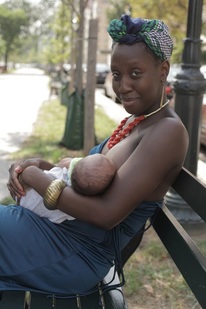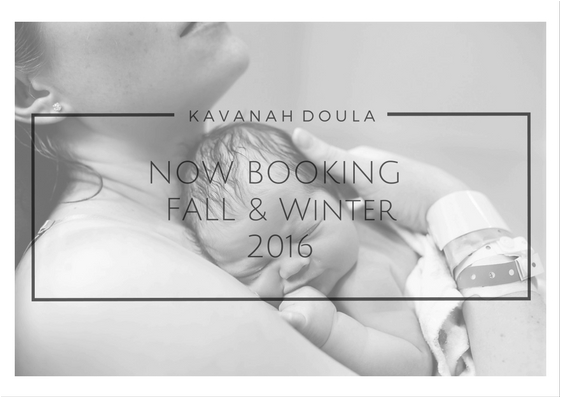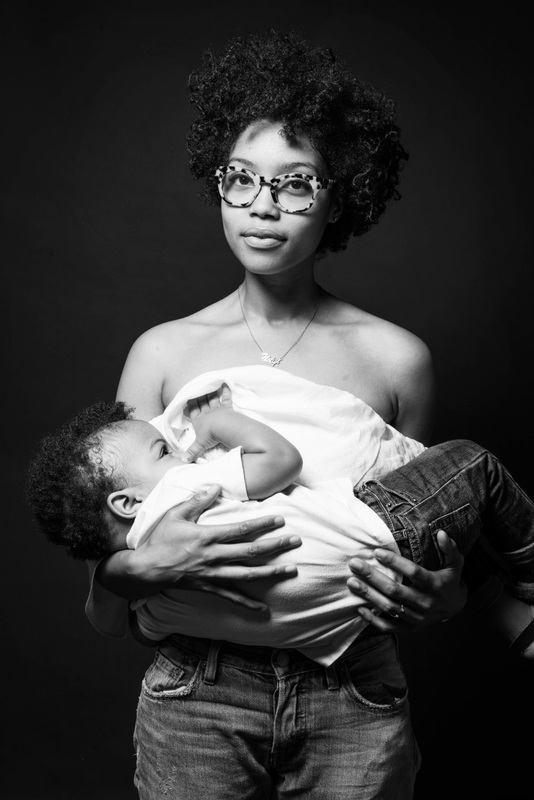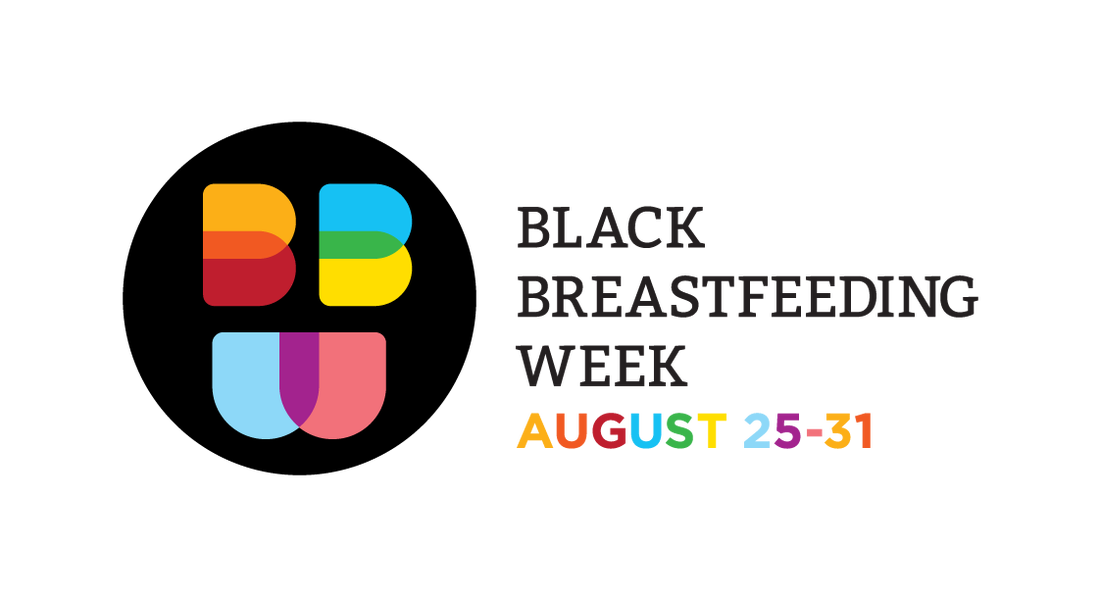|
8/30/2016 9 Beautiful Photos Of Black Moms Proudly Breastfeeding - Huffington Post Cross-PostRead NowIt’s Black Breastfeeding Week and groups of moms, like the creators of the week, want to make sure people see positive images of black motherhood, especially while they’re breastfeeding.
Supportive communities, such as Black Women Do Breastfeed, Black Moms Breastfeeding Support Group and Mocha Milk Mommy’s Breastfeeding Support Group, are fighting to improve the concerning breastfeeding statistics that show that for years “black infants consistently had the lowest rates of breastfeeding initiation and duration,” according to the CDC. In honor of Black Breastfeeding Week, The Huffington Post photographed nine proud breastfeeding mamas who share why they believe society needs to see more empowering images of black women nursing their children. Keep Reading
0 Comments
 Today marks the 4th annual Black Breastfeeding Week and as a black doula, a black woman and a black woman who hopes (G-d willing) to be a black mother who breastfeeds, I am always so happy when this week shows up. I sort of live for pictures of women nursing. Nothing can make me squeal or sign or go "Awww" like a photo of a bright eyed babe sucking from it's parent. And while I do love a video of a breast crawl and absolutely think that nursing infants are the bees knees, nothing makes my heart flutter like photos of toddlers nursing. Something about their expressive eyes, their long limbs, there giant milky smiles makes me so happy. While there have been some serious strides in the way that our society views breastfeeding and extended breastfeeding, many parents that I've spoken to (or read about online) have experienced discrimination and ignorance around where and when it's appropriate to nurse a child and for how long. While there is extensive research on the benefits not only of nursing, but nursing children into toddlerhood, it's still very much considered a taboo. Black Breastfeeding week was created to address the disparity between black women who nurse and white women who nurse. While sometimes difficult to get going, nursing is by and large the cheapest and most natural way to feed a baby*, so why aren't black women given the same "fighting chance" at this free nutrition than their white counterparts? This is what the Black Breastfeeding Week Website has to say: " The most recent CDC data show that 75% of white women have ever breastfed versus 58.9% of black women. The fact that racial disparity in initiation and even bigger one for duration has lingered for so long is reason enough to take 7 days to focus on the issue..." It goes on to list these Top Five Reasons We Need Black BreastFeeding Week: 1. The high black infant mortality rate: Black babies are dying at twice the rate (in some place, nearly triple) the rate of white babies. This is a fact. The high infant mortality rate among black infants is mostly to their being disproportionately born too small, too sick or too soon. These babies need the immunities and nutritional benefit of breast milk the most. According to the CDC, increased breastfeeding among black women could decrease infant mortality rates by as much as 50%. So when I say breastfeeding is a life or death matter, this is what I mean. And it is not up for debate or commenting. This is the only reason I have ever needed to do this work, but I will continue with the list anyway. 2. High rates of diet-related disease: When you look at all the health conditions that breast milk—as the most complete “first food,” has been proven to reduce the risks of—African American children have them the most. From upper respiratory infections and Type II diabetes to asthma, Sudden Infant Death Syndrome and childhood obesity—these issues are rampant in our communities. And breast milk is the best preventative medicine nature provides. 3. Lack of diversity in lactation field: Not only are there blatant racial disparities in breastfeeding rates, there is a blatant disparity in breastfeeding leadership as well. It is not debatable that breastfeeding advocacy is white female-led. This is a problem. For one, it unfortunately perpetuates the common misconception that black women don’t breastfeed. It also means that many of the lactation professionals, though well-intentioned, are not culturally competent, sensitive or relevant enough to properly deal with African American moms. This is a week to discuss the lack of diversity among lactation consultants and to change our narrative. A time to highlight, celebrate and showcase the breastfeeding champions in our community who are often invisible. And to make sure that breastfeeding leadership also reflects the same parity we seek among women who breastfeed. As a quick note, when I first came to the PNW I was shocked to learn that there was only one International Board Certified Lactation Consultant in the state of Washington who is a person of color. ONE WOMAN. 4. Unique cultural barriers among black women: While many of the “booby traps”™ to breastfeeding are universal, Black women also have unique cultural barriers and a complex history connected to breastfeeding. From our role as wet nurses in slavery being forced to breastfeed and nurture our slave owners children often to the detriment of our children, to the lack of mainstream role models and multi-generational support , to our own stereotyping within our community—we have a different dialogue around breastfeeding and it needs special attention. 5. Desert-Like Conditions in Our Communities: Many African American communities are “first food deserts”—it’s a term I coined to describe the desert like conditions in many urban areas I visited where women cannot access support for the best first food-breast milk. It is not fair to ask women, any woman, to breastfeed when she lives in a community that is devoid of support. It is a set up for failure. Please watch this video and educate yourself on the conditions in many vulnerable communities about what you can do (beyond leaving comments on blogs) to help transform these areas from “first food deserts” into First Food Friendly neighborhoods. Posted August 19, 2014 in: 2014 by Kimberly Seals Allers I'm so excited to help spread awareness about the need for greater support for people who hope to nurse their babies, especially shifting that focus this week on black women and our unique needs. *I want to acknowledge that the term "breast is best" is hugely problematic and that for some folks, breastfeeding is not an option or not an option in the traditional boob to mouth style. I think that a fed baby is best and we all do it in ways that our best for us as individuals.  Back in March the American Journal of Obstetrics and Gynecology released q study that confirmed what a lot of midwives and doulas (and yes many OBGYNs) have been saying for a while. Pregnant people need more time to push. In fact, the study proved that if women and pregnant people were given as little as one extra hour to push their rates of unplanned C-Section went down by roughly half. HALF!
According to the Huffington Post article about the study, while this information has he potential to radically change how people give birth in the U.S, it may not actually amount to concrete change. Author Catherine Pearson writes, while the study is small, it's "unlikely to fundamentally change medical norms any time soon, researchers say it offers a much-needed critique of potentially outdated standards." Just how outdated are the standards you may ask, well the allotted time a woman is "allowed" to push was adopted in the late 1800s. “[The time recommendation] came from expert opinion from the 1800s,” said Dr. Alexis Gimovsky, a fellow in maternal fetal medicine at Thomas Jefferson University in Pennsylvania, and an author on the study. “Since then, there’s really only been retrospective data used to validate that guideline.” In the 1950s, researchers looked over earlier data and found that women who delivered their babies within two hours had lower rates of infection and serious postpartum bleeding, for example. In 1955, another team concluded that most women without anesthesia give birth within two hours." So what does this all mean? In my opinion it goes back to the idea of B.R.A.I.N, being armed with knowledge, and being confident that your body knows how to give birth. As a review B.R.A.I.N is an acronym I suggest pregnant folks and couples start to using during prenatal appointments with your caregiver.Using it early on in pregnancy and frequently helps you get accustomed to the process of coming to your care provider with questions and being ready with responses that are best for you and your baby. Frequently using B.R.A.I.N also is great so that when something is suggested during labor, you're ready to ask: B: Benefits - What are the benefits of doing this? R: Risk -What are the risks of doing this? A: Alternatives -What alternatives do we have? I: Intuition/Instinct - What's your gut say? N: Nothing - What happens if we do nothing? I will close by saying that there are many reasons that birth visions fall off track and interventions and potential c-sections are how some babies are born. I like to say that there is no "right" or "wrong" way to give birth. And this evidence-based information about not rushing into pushing and giving you, the person giving birth, time to ease into pushing and to let pushing happen can result in the birth you vision.  I'm so excited to announce that I will be attending the Childbirth Educator Training at the Simkins Center this September! I'm also thrilled to be a recipient of one of their coveted scholarships because for focus and goal of providing doula and now Child Birth Education to women of color, the LGBTQ community and all families in the South Puget Sound area! Starting in October I will be accepting clients for Childbirth Education and am booking births for November, December, January and February! Feel free to send me an email at [email protected] for questions and to schedule a free consultation! Hello All!!
I am just back from a month-long, immersive Jewish studies trip to Israel! I spent the last month in deep spiritual growth literally elbow-deep in Torah! It was profound and amazing and truly magical! You can check out my personal blog for all of the details! I will be back next week with updates on availability for the fall and winter, plus new products being made in my kitchen! Stay Tuned! |
Details
AuthorHi there! I'm Erika Davis and I'm a doula working in the Seattle and South Puget Sound area. Archives
December 2018
Categories
All
|


 RSS Feed
RSS Feed